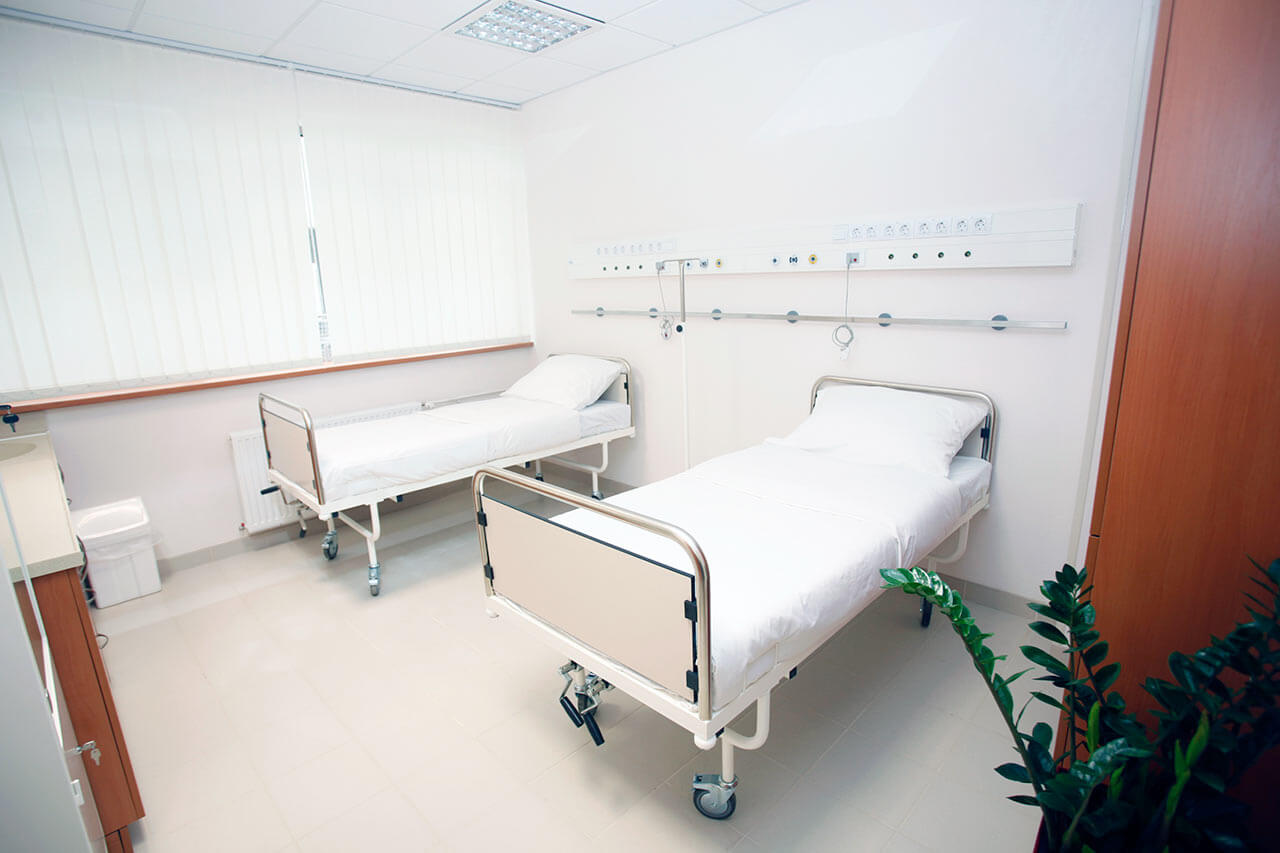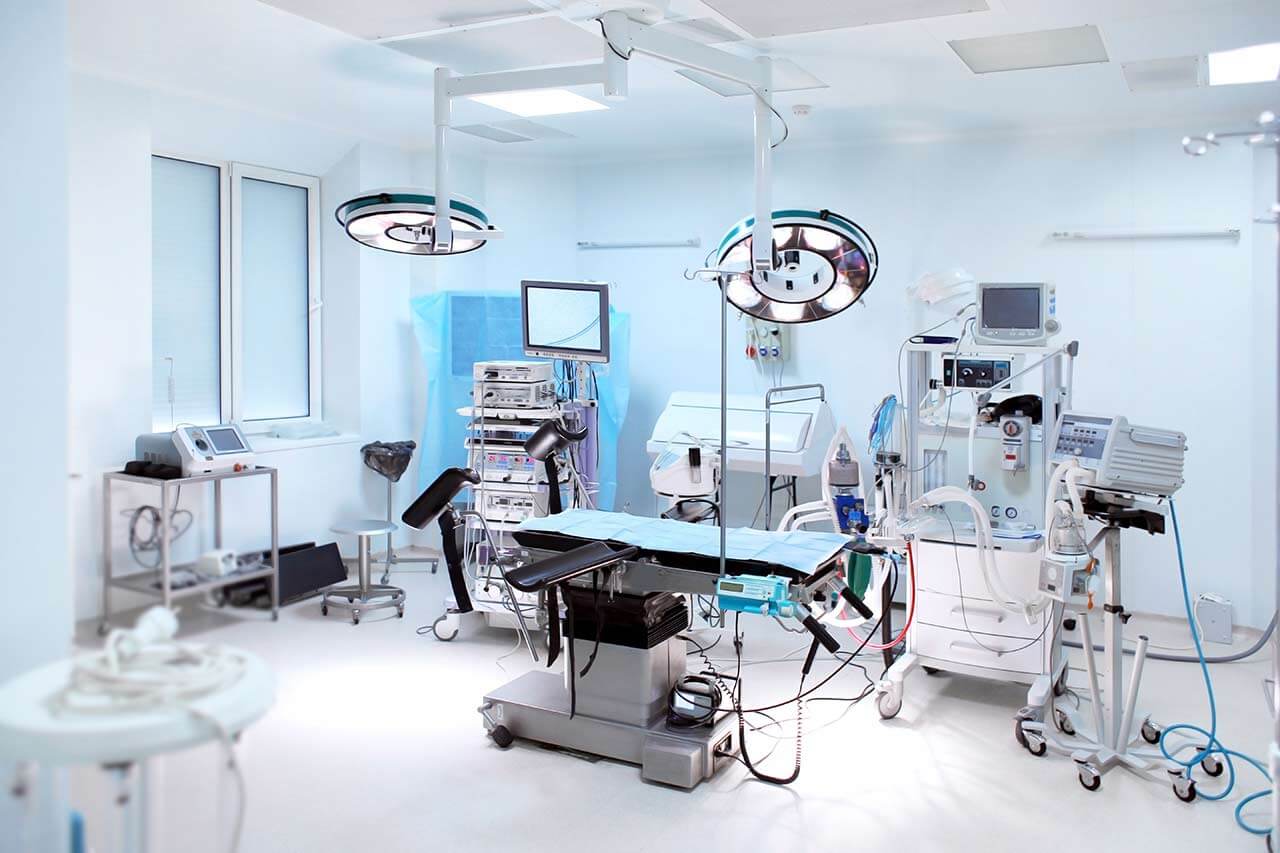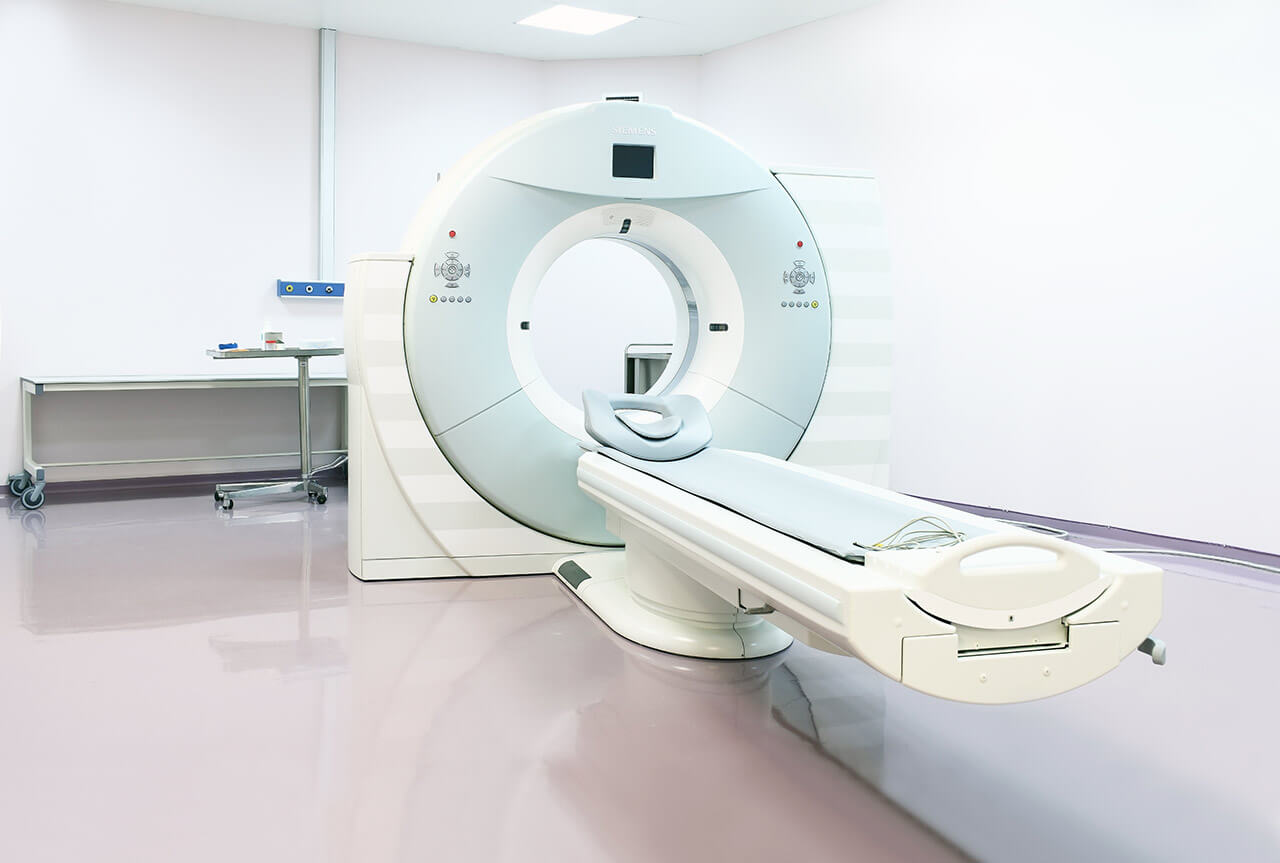
About the Department of Cardiology at Asklepios Hospital Barmbek Hamburg
The Department of Cardiology at the Asklepios Hospital Barmbek Hamburg provides comprehensive diagnostics and treatment of the full range of cardiovascular diseases and concomitant internal diseases. The department's cardiologists specialize in drug therapy and interventional catheter-based treatment. State-of-the-art Cardiac Catheterization Laboratories serve to perform many effective interventional procedures that often replace traumatic open-heart surgery. The specialists successfully perform interventional procedures such as percutaneous transluminal coronary angioplasty, left atrial appendage closure with an occluder, cardiac resynchronization therapy, and defibrillator implantation. The department has a Chest Pain Unit where patients with acute coronary syndrome are admitted round the clock. The department boasts its advanced diagnostic infrastructure, including equipment for CT, MRI, and ultrasound scans of the heart, intravascular ultrasound scans, echocardiography, Holter ECG monitoring, fractional flow reserve measurement, etc. The health of patients is in the safe hands of a team of highly qualified specialists for whom the priority is effective and, at the same time, sparing treatment with due consideration of the patient's individual wishes and needs. The Head Physician of the department is PD Dr. med. Gerian Grönefeld.
The primary focus of the department's clinical activities is cardiac catheterization. Cardiologists have the opportunity to eliminate stenoses and obstructions of coronary arteries through the femoral artery without any traumatic chest incisions. To do this, the specialists perform percutaneous transluminal coronary angioplasty with subsequent stent implantation. In certain cases, these methods help to avoid aortocoronary bypass, which is open surgery with thoracotomy. This method is particularly valuable for elderly patients with comorbidities, for whom classical surgery may be contraindicated. The duration of percutaneous transluminal coronary angioplasty is about 1 hour. The therapeutic manipulation is performed under local anesthesia. After stent implantation, the patient is monitored for about a day, and the next day they are discharged.
The department has also gained vast experience in medical care for patients with heart rhythm disturbances (arrhythmias). One of the effective treatment options for arrhythmias in which the heart contracts too quickly or irregularly (for example, ventricular tachycardia or ventricular fibrillation) is the implantation of a cardioverter-defibrillator. The operating principle of the device is as follows: if the device registers a rhythm disturbance, it generates a series of electrical impulses to correct it. The intervention for implanting the cardioverter-defibrillator is not a major surgery and is performed under local anesthesia. A hospital stay after the procedure is only 2-3 days. After the intervention, the patient needs regular check-ups: 4-6 weeks after surgery, then every 3 months during the first year, and then every 6 months thereafter.
The medical facility performs catheter-based interventions for the implantation of pacemakers. This treatment is often indicated for patients with bradycardia, when the heart rate is less than 60 beats per minute. A pacemaker is a miniature device consisting of three elements, such as a computer, a battery, and from 1 to 3 electrodes. The pacemaker is implanted using catheter-based techniques under local anesthesia. The device is implanted under the collarbone, and the electrodes coming out of it are placed in the heart. The procedure of pacemaker implantation lasts 40-60 minutes.
The department's cardiologists also successfully perform cardiac resynchronization therapy (CRT), which is a special form of cardiac stimulation. The aim of this treatment is to improve heart performance. In addition to electrodes in the right atrium and right ventricle, cardiologists also insert an additional electrode in the left ventricle area, which allows specialists to improve the pumping function of the heart by synchronizing the pacemaker electrodes and, consequently, the heart contractions. As a rule, doctors resort to cardiac resynchronization therapy in cases of significantly reduced heart function or when left bundle branch block is detected. CRT can be combined with cardioverter-defibrillator implantation whenever required. This treatment option is usually considered on an individual basis.
The department's range of medical services includes:
- Diagnostics
- Echocardiography
- Electrocardiography
- 24-hour Holter monitoring
- 24-hour blood pressure monitoring
- Fractional flow reserve measurement
- Intravascular ultrasound examination
- Cardiac computed tomography
- Cardiac magnetic resonance imaging
- Treatment
- Drug therapy
- Catheter-based interventional treatment
- Transluminal coronary angioplasty with subsequent stent implantation
- Left atrial appendage closure with an occluder
- Patent foramen ovale closure with an occluder
- Atrial septal defect closure with an occluder
- Cardioverter-defibrillator implantation
- Pacemaker implantation
- Cardiac resynchronization therapy
- Other medical services
Curriculum vitae
Higher Education and Professional Career
- Medical studies, Goethe University Frankfurt.
- Medical studies and doctorate, University of Hamburg.
- 1981 - 1983 Alternative service (out-of-hospital care for the sick and infirm), Caritas Cologne, Cologne/Bonn.
- 1990 - 1991 Assistant Physician, Main-Taunus District Hospital, Hofheim am Taunus, Hesse.
- 2002 - 2005 Senior Physician, University Hospital Frankfurt am Main.
- Since 11.2005 Head Physician, Department of Cardiology, Asklepios Hospital Barmbek Hamburg.
Photo of the doctor: (c) Asklepios Klinik Barmbek





